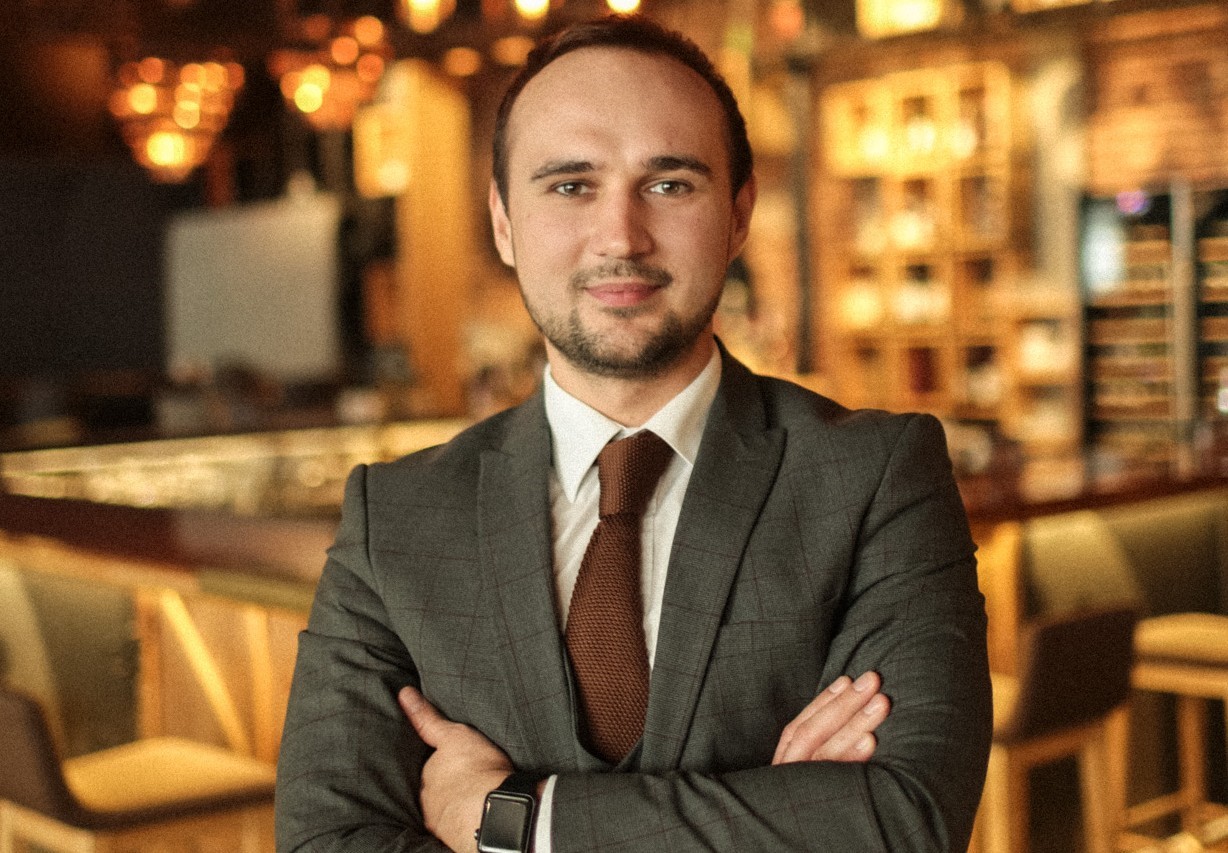Crowdsourcing Video News: An Interview With StringersHub's Yakau Buta

Founded in 2017, StringersHub is a marketplace that connects videographers and news outlets. As another example of the decentralization trend, it allows news outlets to draw from eyewitnesses to news events, as well as professional videographers around the world, for footage. Ventures such as the New York–based startup Fresco News have also sensed the potential opportunity to draw from those closest to rapidly unfolding news events for video footage.
In this interview, StringersHub CEO Yakau Buta (pictured at top) describes the origin of his venture, the most significant challenges to delivering quality, accurate video footage, and his company's most prized achievements to date.
Erich Prince: Describe how you came to run StringersHub. Why the video side of news?
Yakau Buta: Since I was young, my life was closely associated with TV journalism and entrepreneurship. When I already had a communication agency, my foreign colleagues once asked me to organize a video shoot in Belarus, my home country. I agreed to help with pleasure. After a successful broadcast, the guys asked me to help them with video in another country. The system gradually started to work, and we created StringersHub, a worldwide marketplace, where we connect professional video freelancers and event witnesses with media buyers — [for] TV channels, production studios, and Internet broadcasters — who need video content.
Now, the platform has more than 10,000 stringers and 500 clients worldwide, including the world's most popular television channels, from ITV to Al Jazeera. Media buyers can quickly send a video shooting assignment or find ready-to-use footage in the marketplace.
How does it work? Eyewitnesses or professional videographers shoot interesting stories or real-time events; they register and upload their video content to our platform; and, after media buyers purchase a video, the stringer gets paid for it.
Prince: What are some of the biggest challenges facing the procurement and distribution of video content in news?
Buta: Our job is always challenging. Mass media companies are fighting every second to be the first to provide breaking news content. So, we need to be even faster than the media. It's common that after accidents, for example, news sources share the same videos. Our challenge is to give editors a choice from several videos.
But the biggest challenge is the content's fact-checking. As we get more and more video content every year, we need to check it every time. We also need to check for its exclusivity. Our team checks every video that comes to the web platform manually. However, we're starting to move toward technologies to help us with that. Last year, we launched a mobile app for stringers and eyewitnesses, where the date and location of the videos are automatically verified via the app.
Prince: How are those who submit content via StringersHub compensated?
Buta: Stringers set the price for each video they upload, and then they get paid every time the video is bought. If it's hard for stringers to set a price, they can confer with our moderators at any time. Our team can also advise them to raise or lower the price depending on the video. There's a chance that we'll change or enhance the system a bit in the future — mainly due to partnerships with online video libraries. So, we're open to new approaches.
Prince: What are some of the videos submitted through your platform that appeared in the news that you are most proud of?
Buta: We are proud of any video our clients are happy with. For example, one stringer recently shot the footage for ITV about children who are dying and being displaced at an unprecedented rate in Syria's Idlib province, the last big rebel stronghold in the country. Among the most memorable and extreme shootings from stringers included videos of the 2019 terrorist attack at the Brazilian school in Suzano, São Paulo state.
We're very proud of an interview recorded with former Mexican president Felipe Calderón, as well as vox pop videos around the globe, including about China. We had a first interview with Russia foreign agent Maria Butina after she was released from prison and was flying from Miami back to Moscow. We've had the first videos of many air disasters, as well, including in Kazakhstan, Iran, and Russia. The list goes on and on.
Prince: Can you describe the geographic range of where videos are coming from?
Buta: We work with stringers in 193 countries. So, it's easier to say videos are literally coming from all over the world, including from dangerous and remote areas in the Middle East, Asia, and Africa. Some districts are more active — some less so. Many videos come from some of the poorest regions of the world, where people need money and are, therefore, more motivated to collect footage and submit it.
Prince: Lastly, to paraphrase the investor Phil Fisher's famous question, what is your company doing that your competitors aren't doing yet?
Buta: We transformed our weakness into our superpower. Since we're located far from the largest media companies — both geographically and mentally — we have to work harder and be more flexible than our competitors. We don't have a long history and powerful people behind us, but we have a passionate desire to be the leaders in this area. So, we walk towards this aim step-by-step.
We regularly offer free shootings for our loyal media buyers. We also offer permanent free of charge in-house producing and direct communication to stringers for every client. We do not have any subscription fees, while offering videos literally from all over the world. Our platform works not only as a video news stock; we [also] can quickly execute an order for media buyers based on their narrow requirements. And we think of improving our platform every day, making it as useful and convenient to our clients and stringers as possible.
Don't stop now! Stay in the know with critical commentary on media news coverage from Erich Prince and News on the Record.
Click the social buttons to share this story with colleagues and friends.
The opinions expressed here are the author's views and do not necessarily represent the views of MediaVillage.com/MyersBizNet.


